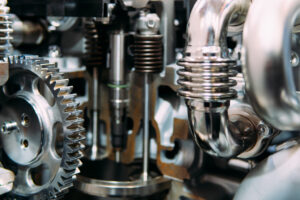Diesel Engines: Basic Tips Before Buying

A Diesel engine works on the principle of compression to ignite the fuel. This is in contrast to a gasoline engine, which utilizes a spark plug to start the fuel. Diesel engines are more efficient than gasoline engines and can run on a variety of fuels, including diesel oil, biodiesel, and natural gas.
Diesel engines are most often used in heavy-duty vehicles like trucks and buses. In recent years, they have grown increasingly popular in passenger cars as well.
These engines function by compressing air in the cylinder to produce high temperatures. Then, fuel is injected into the cylinder, where it catches fire and produces power. The exhaust gases are expelled through the exhaust system afterwards.
Diesel-powered engines are typically more durable and last longer than gasoline models with adequate maintenance. Although diesel engine downsides used to include louder noise levels, this issue has been resolved somewhat as technology advances.
There are a few things to consider if you’re thinking about purchasing a diesel-powered engine for your car. First, diesel is generally more costly than gasoline. Second, diesel-powered engines engines require more maintenance than gasoline ones, although this isn’t usually an issue. Third, because diesel engines emit more greenhouse gases, they may not be the best option for you if you’re concerned about your carbon footprint.
Diesel-powered engines boast many benefits that might make them the right choice for your next car. They’re often more efficient than gasoline engines, they can run on a variety of fuel types, and they tend to be quite durable. Of course, as with any big purchase, it’s important to do your research before making a decision!





















